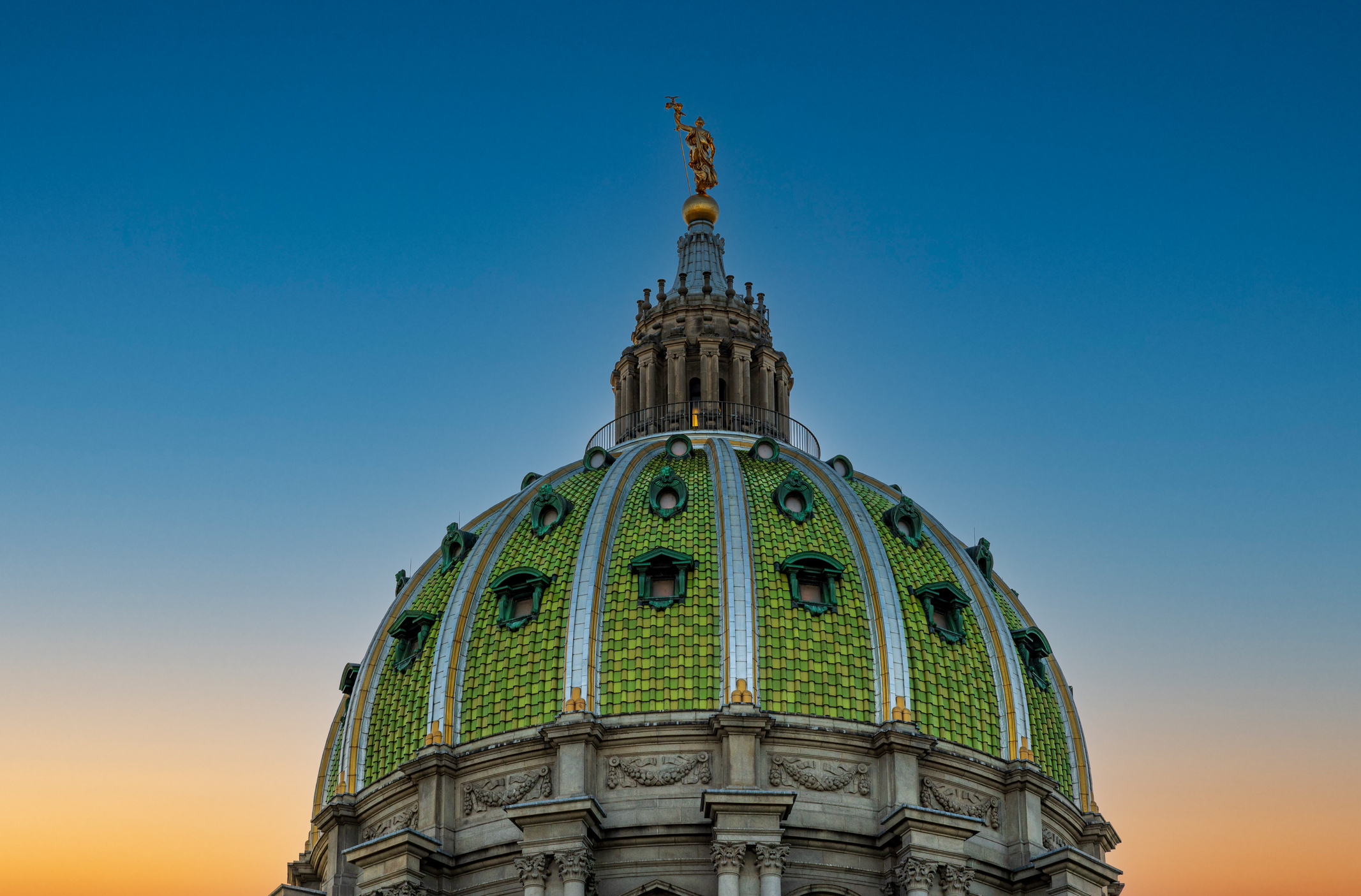
By: Ryan J. Stevens
As COVID-19 first swept across the country, states implemented various stay at home orders. As a result, many facets of everyday life changed drastically. This includes the ability to purchase and sell alcoholic drinks. Should liquor stores be considered an essential business, or not? Should states allow for alcoholic beverages to be sold to-go? These are questions that various states have wrestled with over the last few months.
Restaurant consultants argue that alcohol sales should be around 30% of a restaurant’s revenue. With dine-in services prohibited, restaurants have waited for governments to loosen restrictions to allow to-go sales. The National Restaurant Association noted in March that COVID-19 could result in restaurants losing $225 billion in sales over the following three months, resulting in a loss of five to seven million jobs. While it may not represent an exact economic loss, 30% of $225 billion is $67.5 billion. While COVID-19 initially resulted in a surge in alcohol-related sales in total (not just restaurants), sales have since died down.
Many states have changed how they allow for the sale of alcohol, but certain changes have been trending and could remain a permanent fixture in how someone can purchase alcohol. What kind of changes are states making? Will they become permanent?
Texas
Before COVID-19, Texas took steps to implement new laws related to alcohol. In 2019, Texas became the last state to allow for the purchase of beer directly from breweries and taprooms. Breweries were previously allowed to sell beer, but customers had to drink the product on site. Additional pre-COVID-19 changes include extending Sunday beer and wine sales hours, allowing alcohol to be delivered, and allowing licensed restaurants and retailers to deliver beer, wine, and liquor directly to customers or through delivery services.
In mid-March, Governor Greg Abbott issued a waiver allowing for restaurants to deliver alcoholic beverages. The waiver includes beer, wine, and mixed drinks, but restaurants are only able to deliver them if they accompany a food purchase. Restaurants may only sell alcohol in the original sealed container, and all distilled spirits must be 375 milliliters or less.
Abbott took further steps, allowing for alcohol to-go sales to continue after May 1 and indicating on his Twitter that Texas may keep this practice moving forward post-COVID-19. It is not clear at this point when alcohol-to-go services may end in Texas. The Texas Alcoholic Beverage Commission did indicate that the to-go sales would only be allowed during the Governor’s disaster proclamation issued in March.
The Texas Legislature meets on a biennial basis in odd-numbered years, so time will tell if legislators will introduce any bills to address these changes next year.
Florida
Meanwhile, in the Sunshine State, Governor Ron DeSantis signed a mid-March executive order suspending the sale of alcohol for consumption on-site by licensed establishments. Instead, restaurants and bars could sell wine, beer, ciders, and spirits in sealed containers and accompanied by a food order.
After the Governor signed the order, the Florida Department of Business and Professional Regulation published guidelines that banned mixed drinks from the previous list of alcoholic beverages allowed to be sold to-go. The Department later changed this, allowing licensees to sell cocktails, wine, and beer in cups, jugs, and other reasonable containers as long as it is for consumption off the premises of the licensed establishment. Other changes included allowing restaurants with licenses to sell and send alcohol to consumers via third-party delivery services and permitting a restaurant to sell food-to-go even if their license to sell alcohol has been suspended.
More recently, Governor DeSantis indicated making these changes a permanent fixture moving forward. He recognized the popularity in the changes made and mentioned the possibility of the legislature making changes to the law allowing for alcohol to-go sales to continue post-COVID-19.
Before the current pandemic, Florida instituted new, more minor changes to laws related to alcohol. Among those laws is the 2018 House Bill 667, which allows licensed beverage vendors to take orders online and permits them to make deliveries either in their own vehicles or a third-party service. The offsite delivery change excluded brewery taprooms.
Pennsylvania
While some states have eased restrictions related to alcohol, Pennsylvania initially closed all liquor stores, which are owned by the state. Governor Tom Wolf later re-opened the online sales portal for the state-owned liquor stores and later allowing for curbside pickup service. Governor Wolf created a Red/Yellow/Green system for all Pennsylvania counties, with the entire state starting in the red. As counties move to Yellow, the state liquor stores will begin to open with restrictions.
When Governor Tom Wolf closed down all of Pennsylvania’s 600 state-owned liquor stores, the Pennsylvania Liquor Control Board (PLCB) reported $29.9 million in sales, setting a record high for single-day sales. Additionally, online sales from April 1 to April 20 exceeded all online sales in the 2018-19 fiscal year.
As a result of the liquor stores being closed and issues with online and curbside sales, many residents of the Keystone State began traveling to other states to buy their liquor. The alcohol-tourism prompted Ohio Governor Mike DeWine to announce that only Ohio residents with a valid ID would be able to make purchases at liquor stores in certain counties. Several counties in West Virginia followed suit.
Will any changes be made to Pennsylvania’s liquor laws because of the COVID-19 pandemic? Will this renew interest in liquor privatization in Pennsylvania? House Bill 327 recently passed both the House and Senate. This bill would allow taverns, restaurants, and hotel bars that are currently selling food-to-go to also sell mixed drinks to-go in sealed containers up to 64 ounces. The Governor indicated he will sign the bill.
Pennsylvania’s legislature has taken previous action on easing alcohol restrictions, passing House Bill 1690, which became Act 39 of 2016. The new law expanded state liquor store hours, including Sundays, allowed for wine to be delivered directly to consumers’ homes, and allowed for grocery stores, restaurants, and gas stations to sell wine and beer (not liquor) as long as they received a license from the PLCB.
New Jersey
Last week, New Jersey Governor Phil Murphy signed A3966, which made it legal to both sell and deliver mixed drinks and cocktails during the current COVID-19 pandemic. Under the new law, bars and restaurants that hold liquor licenses are now able to sell and deliver mixed drinks and cocktails in sealed containers. Before the new bill, establishments licensed for alcohol sales were only able to sell alcohol for takeout or delivery but only in its original container, such as a bottle of wine, a four-pack of beer, or a canned cocktail. As such, the effects of the COVID-19 were felt immediately. One restaurant reported that it lost 35% of its revenue due to not being allowed to sell mixed cocktails.
However, the new law is temporary. It expires six months following the end of the current state of emergency, or six months following the date on which the COVID-19-related occupancy or customer seating restrictions no longer apply, whichever occurs later.
Previously, Governor Murphy identified liquor stores as an essential business in his Executive Order in late March. The same order permitted limited breweries, brewpubs, plenary and farm wineries, craft distilleries, and craft meaderies and cideries to continue their operations with updated restrictions.
Local action
While most states are taking executive or legislative action, others are leaving it up to local jurisdictions. One such state is Nevada, where the City of Las Vegas and Clark County have both allowed for temporary home delivery of alcohol during the current pandemic.
What does the future look like?
How do consumers feel about this issue? Before COVID-19 took over our daily lives, the National Restaurant Association reported that 56% of consumers over the age of 21 would likely order alcoholic beverages if restaurants offered them as a part of a food delivery order.
Does the government have an economic incentive to relax alcohol-related restrictions? In 2019, it was estimated that revenue from alcohol taxes amounted to $9.99 billion. This number is expected to increase to over $10 billion in 2025.
Two of the governors mentioned earlier indicated support for extending these changes post-pandemic, but will their respective legislatures agree? We will have to wait and see.
Latest News
Photo credit: iStock.com/sommart In 2025, state governments across the U.S. are advancing initiatives to improve administrative efficiency and modernize civil service, adopting tailored strategies to better serve residents. Recognizing the importance of adaptability, innovation, and [...]
Photo credit: iStock.com/BackyardProduction Governor Josh Shapiro delivered his 2025-26 budget address, outlining economic initiatives, public safety measures, infrastructure improvements, and education funding. His speech emphasized continued investment in key sectors to strengthen Pennsylvania’s [...]
Photo credit: iStock.com/Funtap As cryptocurrency continues to shape global financial systems, U.S. states are increasingly introducing legislation to regulate its use. From allowing payments in digital currencies to banning cryptocurrency ATMs, state governments are focusing [...]
In this episode of the Back in Session podcast, hosts Ryan Stevens and Ryan DeMara sit down with Terra McClelland, President of the State Government Affairs Council (SGAC) and Vice President of Government and External [...]






Stay In Touch